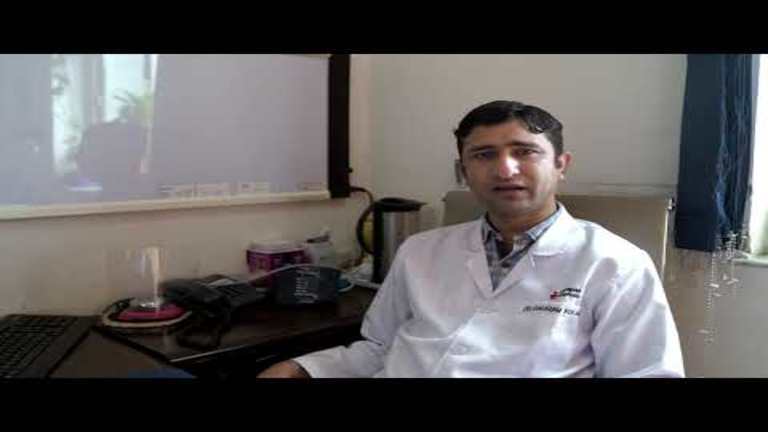-
Book Appointments & Health Checkup Packages
- Access Lab Reports
-
-
Book Appointments & Health Checkup Packages
-
Centre of
Excellence
Centre of Excellence
Other Specialities
- Anesthesiology
- Bone Marrow Transplantation
- Cardiothoracic Vascular Surgery
- Dental Medicine
- Dermatology
- Diabetes and Endocrinology
- Ear Nose Throat
- Extracorporeal Membrane Oxygenation (ECMO)
- General Surgery
- ICU and Critical Care
- Infectious Disease
- Internal Medicine
- Laboratory Medicine
- Liver Transplant & HPB Surgery
- Microbiology
- Nutrition And Dietetics
- Ophthalmology
- Pathology
- Pharmacy
- Physiotherapy
- Plastic And Cosmetic Surgery
- Psychiatry
- Pulmonology (Respiratory and Sleep Medicine)
- Radiology
- UBE Spine Surgery
- Vascular and Endovascular Surgery
- Doctors
- Jaipur
-

Bengaluru

-

Bengaluru
-
-

Bhubaneswar
-

Delhi - NCR

-

Delhi - NCR
-
-

Goa
-

Jaipur
-

Kolkata

-

Kolkata
-
-

Mangalore
-

Mysore
-

Patiala
-

Pune

-

Pune
-
-

Salem
-

Vijayawada
- International Patients












Neurosurgery
Best Neuro Hospital in Jaipur
Neurological conditions are some of the most common and debilitating diseases affecting people of all ages. In India alone, over 30 million people suffer from neurological conditions yearly. Neurosurgeons are medical specialists who perform complex surgeries on the brain and spinal cord. They also treat patients with neurological disorders such as Epilepsy, Parkinson's disease, and Alzheimer's disease. Neurosurgery involves the operative treatment of diseases or nervous system injuries, including the brain, spinal cord, and peripheral nerves. Neurosurgeons treat patients with tumours, trauma, infections, and vascular diseases and those with epilepsy and movement disorders.

OUR STORY
Know About Us
Why Manipal?
Manipal Hospitals is the best neuro hospital in Jaipur. We perform more than 1500 complex neurosurgery operations yearly and have the best neurosurgeon in Jaipur.
Our neurosurgeons are world-leading experts on the board of international neurological societies and prestigious universities worldwide. They use the latest technology and cutting-edge surgical practices like minimally invasive surgery, robotic surgery, intraoperative MRI, stereotactic radiosurgery, computer-assisted brain surgery, and deep brain stimulation.
The number of neurological cases referred to us from all over the world is a testimony to our best practices. We are the best neurosurgery hospital in Jaipur, with advanced diagnosis and treatments.
At Manipal Hospitals, we have the best neurosurgery hospital in Jaipur, which helps patients manage conditions like:
-
Brain Stroke - Damage to the brain from an interruption in blood supply
-
Cerebral Palsy - Disorder that affects movement and balance
-
Dementia - Conditions impacting memory
-
Diabetic Neuropathy - Nerve damage due to diabetes
-
Dyslexia- Difficulty in reading
-
Dystonia- Disorder causing muscle contractions
-
Encephalitis- Inflammation of the brain
-
Epilepsy- Disturbance in the brain's nerve cell activity
-
Essential Tremors - Involuntary shaking
-
Esthesioneuroblastoma - Cancer inside the nose
-
Facial Palsy - Weakness on one side of the face
-
Frontal Lobe Seizures - Seizures in the front part of the brain
-
Ganglion Cyst - Lumps in the wrist
-
Guillain Barre Syndrome - Immune system attacking nerves
-
Arteriovenous Malformations of the Brain- Tangled blood vessels
-
Glioma - Tumour in the brain and spinal cord
-
Huntington's Disease - Nerve cells break down over time
-
Idiopathic Hypersomnia - Disorder causing sleep during the day
-
Insomnia - Sleep disorder
-
Intracranial Hematoma - Blood collection in the skull
-
Meningioma - Tumour that compresses brain nerves
-
Migraine - Intense headache
-
Myoclonus- Sudden muscle spasms
-
Parkinson's Disease - Disorder affecting movement
-
Sciatica - Radiating pain along sciatica nerve
-
Sleep Apnea - Breathing disorder during sleep
-
Traumatic Brain Injury - Brain trauma from an outside force
-
Trigeminal Neuralgia - Painful sensations from the face to the brain
-
ADHD - Attention difficulty mostly in children
-
Alzheimer's Disease - Gradual death of brain cells
-
Benign Peripheral Nerve Tumour- Growth that slows brain signals
-
Brain and Cerebral Aneurysm - Brain blood vessels fill with blood
-
Brain Tumour- Abnormal cells in the brain
-
Febrile Seizures - Fits in children
-
Hydrocephalus Meningitis - Infection in brain membrane
-
Multiple Myelomas - Cancer of plasma cells
-
Myasthenia Gravis - Gradual weakness in skeletal muscles
-
Myelofibrosis - A rare bone marrow cancer
-
Neuroblastoma - Cancer from immature nerve cells
-
Neuroleptic Malignant Syndrome - Rare reaction to drugs affecting the mental status
Treatment & Procedures
Skull Base & Spine Surgery
This type of procedure is performed primarily to operate on cysts, aneurysms, tumors (cancerous and non-cancerous) and other abnormalities present on the skull base, upper vertebrae or underside of the brain. Typically, skull base & spine surgery is performed using minimally invasive methods, using an endoscope through the mouth, nose or by creating…
Arteriovenous Malformation (AVM)…
This is a procedure performed to correct a congenital disorder known as AVM, where there is a formation of tangled arteries and veins which can lead to seizures, internal bleeding and neurological symptoms. It is possible to have an AVM without any adverse effects, but it is considered to be better to remove the risk through surgery. AVM's can form…

Diagnosis Facilities
Intraoperative MRI
Intraoperative MRI allows surgeons to examine a patient's brain or spinal cord during an operation without waiting until after surgery to view images of the affected area, helping them make more informed decisions during surgery and improving patients' outcomes.
Intraoperative MRI is a non-invasive, non-ionising imaging technique to identify the cause of neurological conditions. This advanced technology produces an image using magnetic fields and radio waves. The scan can identify abnormalities in the brain or spinal cord that may be responsible for causing symptoms such as pain, numbness, weakness, or loss of sensation.
CT Scan
A CT scan provides three-dimensional images of the body to diagnose neurological conditions, such as a brain tumour or stroke.
A CT scan injects the patient with contrast liquid, which the body's tissues absorb. The machine sends X-rays and collects them as they bounce off different tissue types.
Treatment Facilities
Skull Base & Spine Surgery
Skull base and spine surgery treat diseases of the skull base, upper vertebrae and brain's underside. Surgeons operate on cysts, aneurysms, tumours (cancerous and non-cancerous) and other abnormalities on the skull base, upper vertebrae or brain's underside. The best neurosurgeon at neuro hospital in Jaipur uses minimally invasive methods like an endoscope through the mouth or nose. They may also use small incisions above the eyes to drain fluid or remove brain tumours.
It often happens that a tumour may lead to an accumulation of body fluids in the brain, which could lead to a build-up of pressure on the brain cells. This can harm the brain, and there is a risk of brain stroke if the condition is left unchecked. Our doctors use minimally invasive techniques to drain fluid build-ups with maximised efficiency.
Arteriovenous Malformation (AVM) Treatment
Arteriovenous Malformation (AVM) is a congenital disorder with tangled arteries and veins forming, leading to seizures, internal bleeding, and neurological symptoms. AVMs can form in the spinal cord, brain, and brainstem. Special neuroradiological scans reveal the AVMs.
Surgery or embolisation treats AVMs. Embolisation involves placing small coils or glue into the arteries of an AVM to prevent blood flow into that area. Surgery involves cutting out the affected area of an arteriovenous malformation.
Stereotactic Radiosurgery
Stereotactic radiosurgery focuses beams of radiation to target cancerous tumours in the brain. It can be a primary treatment therapy for patients with cancerous tumours or used with procedures like chemotherapy or surgery.
The radiation beams target directly at the tumour site, while a CT scan guides the beams' placement and ensures that they are hitting their intended target area. A computer then calculates how much radiation needs to be delivered to each tissue area to destroy cancer cells without damaging surrounding tissue or organs like blood vessels or nerves.
Computer-Assisted Brain Surgery
Computer-assisted brain surgery treats various conditions, including Epilepsy and Parkinson's disease. A neurosurgeon uses the computer to assist with locating the target area, drilling through the skull, and removing unwanted tissue. An electroencephalogram (EEG) machine monitors brain activity during surgery.
Deep Brain Stimulation
Deep brain stimulation (DBS) implants a neurostimulator into the patient's brain. It delivers electrical impulses to specific brain areas to improve symptoms caused by disorders, including Parkinson's disease, essential tremor, dystonia and chronic pain.
DBS can improve symptoms such as tremors and stiffness in the limbs. It can also reduce muscle spasms and relieve chronic pain.
Spinal Tumours Surgery
Spinal tumour surgery removes tumours in the spinal canal. The spinal canal is a narrow passageway that runs through the centre of the spine.
This surgery aims to remove the maximum amount of tumour while preserving as much function and mobility in the patient's back and legs. Visit the best hospital to get the finest treatment with the help of top neurosurgeons in Jaipur.
Book an appointment now at the neurologist hospital in Jaipur to get the finest treatment.

Facilities & Services
With state-of-the-art imaging facilities at Manipal Hospitals, continuous post-operative care has been the heart of every condition treated. Some of the conditions for which treatments are available are: - Brain attack or brain stroke - Cerebral palsy - Dementia - Diabetic neuropathy - Dyslexia - Dystonia - Encephalitis - Epilepsy - Essential tremors - Esthesioneuroblastoma - Facial palsy - Frontal lobe seizures - Ganglion cyst - Guillain-barre syndrome - Arteriovenous malformations of the brain - Glioma - Huntington's disease - Idiopathic hypersomnia - Insomnia - Intracranial hematoma - Meningioma - Migraine - Myoclonus - Parkinsons disease - Sciatica - Sleep apnea - Stroke or traumatic brain injury - Trigeminal neuralgia - ADHD - Alzheimer's disease - Benign peripheral nerve tumour - Brain and cerebral aneurysm - Brain tumour - Febrile seizures - Hydrocephalus - Meningitis - Multiple myelomas - Myasthenia gravis - Myelofibrosis - Neuroblastoma - Neuroleptic malignant syndrome
Facilities available at Manipal Hospitals, Jaipur
Our centre of excellence of Neurosurgery has the best neurologist in Jaipur and has world-class facilities, which include:
-
Robotics
-
Minimally Invasive Surgery
-
Stereotactic Radiosurgery
-
State-of-the-art Operating Room
-
Zeiss Pentero Microscope
-
Cranial Endoscopes
-
High-Speed Drills
-
Cavitron Ultrasonic Surgical Aspirator
-
Intraoperative Neuro-Monitoring Machine
-
Neuronavigation Intraoperative Doppler
-
Disc Replacements
-
Complex Spinal Fusions for Spondylosis
-
Spinal tumours Microsurgery
-
Pediatric Neurosurgery
FAQ's
You will probably feel very tired for several weeks after surgery. You may also have headaches or problems concentrating. It can take 4 to 8 weeks to recover from surgery. Your cuts (incisions) may be sore for about 5 days after surgery.
Neurosurgeries are always complex and daunting, that is why Manipal Hospitals and its team of doctors' goal is to ensure patients are on the path to a quick recovery through the least invasive, most appropriate, and advanced treatment available. Contact us to know more about the different neurological surgeries and book an appointment with one of our neurosurgeons today.
Explore Stories
Home Jaipur Specialities Neurosurgery








